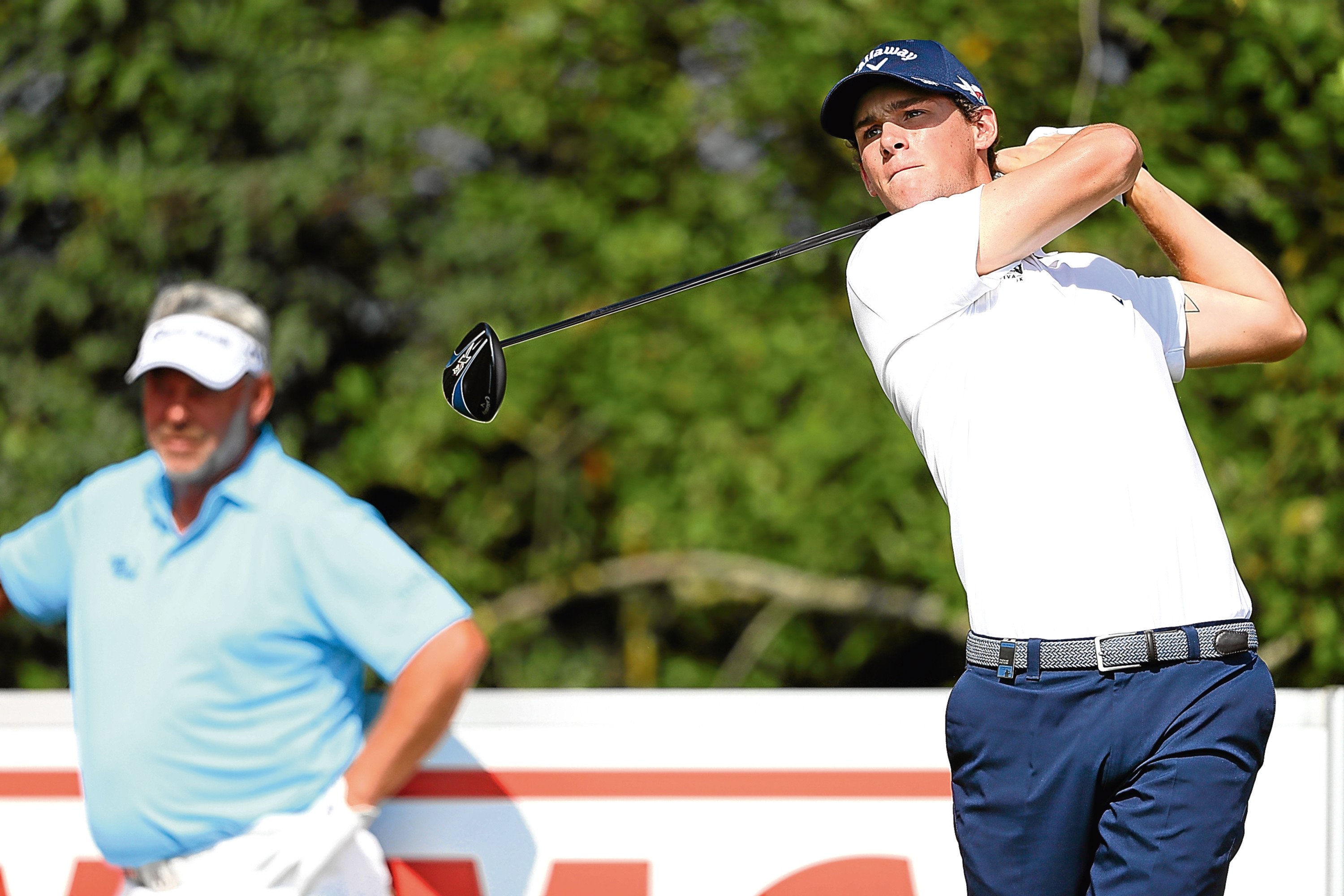The honeymoon is over for Darren Clarke, and the real business starts at lunchtime today.
Clarke will name his three wildcard selections at Wentworth, thereby completing his European team who will defend the Ryder Cup at Hazeltine at the end of next month.
After a pretty quiet ride so far, the journey gets significantly bumpier from here.
Right up until last week, as some columnists breezily predicted, he seemed to have a pretty simple choice. But he hits a roadblock today no matter which names he reveals to the massed ranks of media in the lavish ballroom of the Wentworth clubhouse.
As we’ve detailed before, Lee Westwood and Martin Kaymer remain stick-on selections.
This remains a solid enough assessment. Kaymer hasn’t won since his US Open win of 2014 but has five top tens in the last two months. Westwood has just one top ten since his selection-affirming performance in the Masters, but he has an exemplary record in the Ryder Cup, particularly in performing despite slumps when playing for himself.
In addition to this, Clarke already has five rookies automatically qualified. You don’t really want to have a situation where you field more than one all-rookie foursome or fourball partnership. Any more than six debutants, you’re probably having to do that.
But he seemed bound to pick a rookie with his third and final pick, and this choice came down to Russell Knox and Thomas Pieters.
This wasn’t really a serious discussion a week ago. Knox had all the advantages; fresh off a win in a top ranked PGA Tour event, the next in line on the world rankings, an ideal foursomes partner for someone with his solid, reliable tee to green game, and totally accustomed to American playing conditions.
These advantages haven’t changed, despite Pieters’ victory in the Made in Denmark event at the weekend. Only the Belgian seems to have a momentum that’s ever so slightly familiar.
Like Edoardo Molinari in 2010, or Stephen Gallacher in 2014, Pieters has done just about all he could do at the 11th hour. It was enough for them and one can imagine Clarke, who played with the Belgian on a watching brief for the first two days in Denmark and saw him shoot 62-67, has been seduced.
Yet it wasn’t enough to pass Knox is the world rankings list. Furthermore, it doesn’t even compare to the Scot’s victory in the Travelers Championship two weeks ago.
Don’t take my word for it. The Travelers was given a rating of 326 by the Official World Golf Rankings, a number measuring the strength of the field. Made In Denmark had a rating of 89 and last week’s Czech Open, where Pieters was second, was rated at 55.
Even when combined, Pieters’ last two tournaments don’t rank half as difficult as Knox’s win was, by the same measurement we’re using for the automatic qualifiers.
Pieters is not a rookie in US conditions. He had four years at Illinois when at college and was consistently ranked towards the top of the World Amateur Rankings when he was there.
But he has barely played there as a professional. Before his recent run, he wasn’t even in the conversation for a wild card, his sole performance of note being a 2nd place at Abu Dhabi as far back as January.
Clarke certainly seemed impressed with Pieters in Denmark – how could you not be? But the question with the Belgian always was; if you’re not picking Knox, a rookie but with all his advantages I’ve listed above, are you really going to pick another rookie with even less experience instead?
Pieters’ main attraction was as a political pick – a signal from the European Tour, through Clarke, that playing in Europe is still the best way to get a place on Team Europe.
Those strength-of-field comparison ratings underline the European Tour’s problem at the moment – the strong and moneyed events are invariably on the PGA Tour and more of Europe’s stars are gravitating there as a result.
The Tour has few tools left to keep their best players competing in more events at home. Ryder Cup selection is one of them.
Yet Clarke is not really in this to be an advertisement for the European Tour, his legacy – specifically given that Europe have won four of the five Ryder Cups played this century – depends on him winning.
Being an away captain, he probably has less wriggle room to pick a extra rookie like Montgomerie did with Molinari at Celtic Manor in 2010.
Word is that Darren also has been poring over the stats in a McGinley-type frenzy, and from them he’ll know that last three European rookie wildcards – Molinari, Gallacher and Nicolas Colsaerts – returned just two points between them for their captains.
In that respect, maybe tried and tested Ryder Cup points-winners Luke Donald or Graeme McDowell would be more useful to Clarke. Donald’s sudden collapse in odds yesterday would suggest strongly that this is his thinking.
The Englishman was left out of McGinley’s team despite his Ryder Cup record – almost invincible in foursomes, trusted by Jose Maria Olazabal to lead out the comeback at Medinah, never on a losing side in four appearances.
That same record, despite a modest couple of years and only recent hints of a return to form, makes Donald the safe choice for Clarke.
